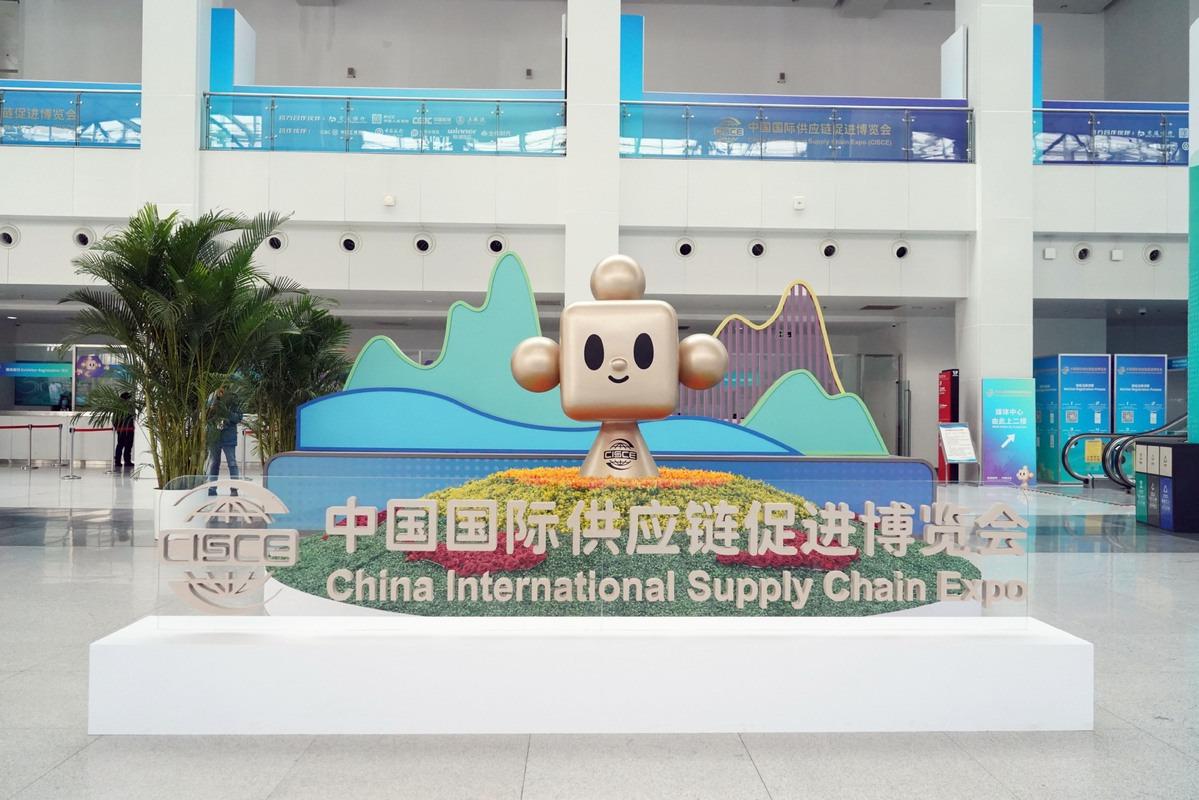 This photo taken on Nov 26, 2023 shows the venue of the China International Supply Chain Expo (CISCE) in Beijing, capital of China. (PHOTO / XINHUA)
This photo taken on Nov 26, 2023 shows the venue of the China International Supply Chain Expo (CISCE) in Beijing, capital of China. (PHOTO / XINHUA)
Both domestic and foreign companies are highly enthusiastic about participating in the second China International Supply Chain Expo to be held from Nov 26 to 30 next year in Beijing, the China Council for the Promotion of International Trade said.
Preparatory work for the event is on in full swing, showing the country's commitment to further opening-up, it said.
The expo will showcase the supply chain achievements of five sectors — smart vehicles, green agriculture, clean energy, digital technologies and healthcare — just like in the first expo, the CCPIT said during a news conference on Wednesday.
The event organizer said it will research the feasibility of showing fruitful results of other industrial and supply chains at the second expo.
The council has already sent out invitations to global companies, and enterprises such as Chinese drugmaker Sinopharm Group, Chinese artificial intelligence company iFlytek and US medical technology company GE HealthCare have signed letters of intent to participate in the second exhibition.
Meanwhile, Chinese enterprises actively held or participated in overseas exhibitions in 2023, and the segment showed a comprehensive recovery trend following the COVID-19 pandemic.
"This year, Asia, Western Europe, and North America stood as important destinations, maintaining high attractiveness for Chinese enterprises interested in participating in overseas expos," said Zhang Xin, a spokesperson for the CCPIT.
"Germany and the United States were the main destination countries for Chinese companies participating in overseas exhibitions, followed closely by Russia, Japan, and Brazil. These five countries together accounted for nearly 50 percent share of Chinese companies' participation in overseas expos this year," Zhang said.
Compared with the pre-pandemic period in 2019, the textile and machinery sectors in China remained the main participants at overseas exhibitions, while the representation of industries such as healthcare, transportation and logistics, and information and communication has increased, he added.
In addition, there have been greater dividends from the Regional Comprehensive Economic Partnership agreement, which took effect on Jan 1, 2022.
The trade pact of 15 Asia-Pacific countries is expected to reduce tariffs by up to 90 percent on goods traded among members over the next two decades.
In November, CCPIT branches nationwide issued 19,834 RCEP Certificates of Origin, up 20.83 percent year-on-year. The certificates will grant companies tariff reductions. It is expected to reduce tariffs by $9 million on Chinese product exports to RCEP member countries.
A report recently released by CCPIT that surveyed various types of enterprises has found that ASEAN's overall business environment has improved this year.
Singapore, Malaysia, Thailand, Vietnam and Indonesia ranked high in terms of favorable business environments, the China and the Association of Southeast Asian Nations Business Environment Report 2023 showed.
The overall business performance of Chinese enterprises operating in the ASEAN region has been good in 2023, and their market share, operating income and net profit in the region are expected to increase this year, the report found.
China and ASEAN have been each other's largest trading partners for three years. As of July, the cumulative two-way investment between China and ASEAN member states exceeded $380 billion, according to the National Development and Reform Commission, the country's top economic regulator.


